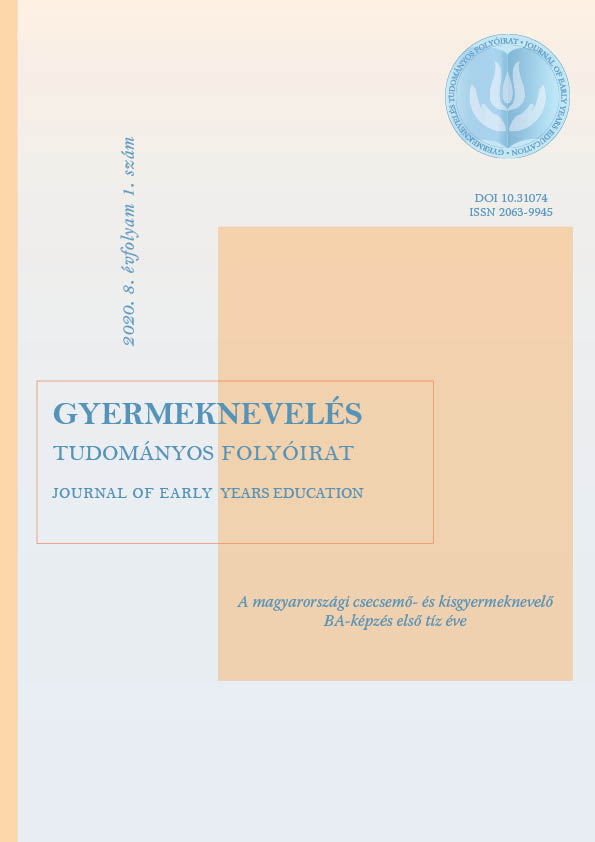Early childhood educators’ language strategies of the assistance of children’s communication
DOI:
https://doi.org/10.31074/gyntf.2020.1.92.104Keywords:
language acquisition, institutional language development in early childhood, baby talk, pedagogical communication, child-adult interactionAbstract
Questions related to the acquisition of the mother tongue have long been of concern to researchers from different disciplines (eg. Philosophy, psychology, pedagogy, linguistics etc.). In recent years, numerous studies have focused on children’s linguistic development, stages and characteristics of development, early recognition and therapy of different language development. In addition, a comprehensive analysis of linguistic development and assessment of development opportunities require the emphasis in linguistic input. According to the „input hypothesis” (Krashen, 1985), language acquisition can only be achieved through the quantity and quality of linguistic effects, the child should be provided with appropriate language patterns and support in early childhood. The Human Ecological Approach (Bronfenbrenner, 1979) emphasise the importance of the environment in the development of the child and combines individual living conditions and socio-cultural influences. Age is important for linguistic input. The brain is most receptive to language acquisition during the sensitive period, after which the development is slower and result is not perfect. In early childhood, linguistic input undeniably comes from mothers and the immediate family environment and institutionalized education broadens the language resources and influences. The present study demonstrates the strategies that affect language acquisition in early childhood interactions and focuses on the ability of these strategies to provide the child with the language development needed at given age.
Downloads
Downloads
Published
How to Cite
Issue
Section
License
Copyright (c) 2020 Author

This work is licensed under a Creative Commons Attribution-NonCommercial-ShareAlike 4.0 International License.

